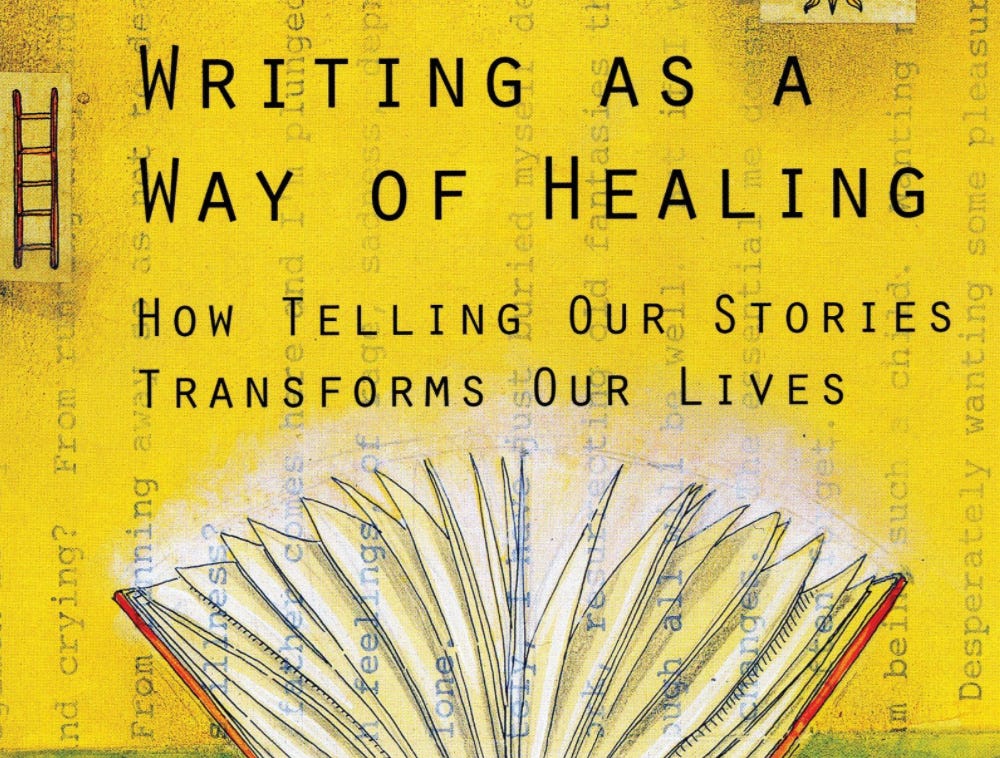Hi there! 👋 I’m Ida, and this is tiny driver, a newsletter about research, pedagogy, culture and their intersections. Thank you for being here. Reach out anytime by just hitting reply, I love hearing from you.
Hello, and happy Monday! Today’s guest newsletter is brought to you by my very dear friend Emily Beugelmans Cook. I have known Emily since I was in college, so needless to say, she’s a wonderful person and such a generous friend. I’m so excited to give her the space to talk about her path out of academia here on tiny driver. I hope that you look forward to reading more and getting to know her!
Hey, tiny driver readers!
I’m Emily Beugelmans Cook, and I write Hired Humanities, a monthly newsletter dedicated to helping humanities students build careers on their own terms. It’s great to meet you. 😊
I’m currently working at an HR technology startup in San Francisco, but in my previous life, I was working towards a PhD in classical philology (aka Latin and Ancient Greek literature). When I exited my grad program in 2015, leaving academia was a taboo subject. I didn’t have many people to turn to for advice, so I had to figure out how to translate my skills into a non-academic career mostly on my own.

Luckily, things are changing. People are talking more openly about leaving the academy, and departments are slowly recognizing the need to prepare students for other careers. Despite the progress, students are still struggling to figure out career options and answer the same questions that I had all those years ago: What does it mean to start over in a new field? Can I be fulfilled if I’m not researching? Who will find my experience valuable outside academia?
I made the decision to start Hired Humanities nearly a year ago (with the guidance of Ida, no less!) to support others as they navigate job interviews, letting go of their academic identity, and more. It’s been a fun ride so far, and I’m honored to share a little slice of my world with you all.
What I teach.
I recently started a new role as an enablement manager at my company. Enablement is a relatively new field in tech, and it’s dedicated to equipping a specific team within an organization with the skills, knowledge, and content that they need to do their jobs well. I’m currently working with our customer experience department, which means that I plan and run training programs on everything from operational procedures to coaching customers on more equitable performance review practices.
I love my job because it leans so heavily on the teaching skills I developed in academia. But let me tell you, it’s not any easier than standing in front of a class full of undergrads. Teaching employees comes with a whole host of challenges, and the toughest one of all is getting their attention. Each time an employee enters my virtual classroom, I know that I’m taking precious time away from executing their day-to-day responsibilities. I have to get what I’m teaching into their heads quickly and effectively, and that means I have to motivate them to engage with the lesson instead of checking emails.
That, my new friends, can be really hard when you have a topic like IT procedures, which can be heavy on jargon and short on fun. A few weeks ago, I was preparing to train my team about a couple of new tools our IT team was implementing, and boy, was I stumped. I had no idea how to make the training engaging. The slides were dull: just a list of steps, along with some context as to why we were putting the tools in place. I knew they simply weren’t going to hold up to the Siren call of Slack notifications.

I was reflecting on this challenge when a memory came to me. One summer, I was tutoring a high school student who was taking Latin. He clearly wanted to be at football practice instead of meeting with me in an overly air-conditioned office building. As a result, the first few sessions were tortuous. He was disengaged with the material, and I was frustrated because I couldn't get him to listen. One day, we were looking at a modified passage from Cicero, and I asked him if he knew about the Catiline conspiracy. His eyes lit up and he started chatting away. I asked him what was interesting to him about it, and he said that he thought Roman history was exciting!
At that moment, I realized I had been approaching my student all wrong. I had chosen to assume he didn’t care instead of checking my assumptions about his level of motivation. By asking him a few simple questions, I had discovered where my goal to help him learn Latin and his interests intersected. The next day, I ditched the cheesy textbook and started framing lessons around key moments in Roman history. His grades started to improve, and by the end of our sessions, he had passed the requirements his school had set out for him.
Remembering that experience, I started asking myself about my audience at work. What did they definitely not like doing? How did I know they were engaged in previous training sessions? What motivated them to get relatively unrewarding tasks done in the past?
The answers to these questions illuminated a few key insights about my audience: 1) People did not like to come off mute in front of large groups on Zoom. 2) Engagement was directly proportional to people’s use of the chat box. 2) Historically, turning procedural activities into a friendly competition tended to result in higher completion rates of the activity.
I couldn’t entirely scratch the slide deck format of the training, so I needed to add some type of activity that encouraged gamified participation through Zoom chat. Eventually, I settled on an activity that seemed most likely to meet these requirements: Zoom chat knowledge checks. After each section of the training, I included a slide with a multiple choice quiz about the material we just covered. During the session, I planned on asking the audience to drop their answer choice in the chat, and after they responded, I would reveal the answer with a new slide and reiterate the key points from the presentation.
Come the day of the training, I was a bundle of nerves. What if no one answered the questions? What if it was a total flop?
Turns out, I had nothing to worry about. Just as I expected, the knowledge checks injected enough of a competition to hold the people’s attention and facilitating the quizzes through the chat boosted overall participation. By the end of the session, several team members had messaged me saying it was one of the most engaging training sessions they had attended in a while.
The experience reinforced what my Latin student showed me all those years ago: to be an effective teacher, you have to meet your students where they are. Too often, we approach what we teach from our own perspective. You might think that an IT procedure is important, or that learning Latin for the sake of it is fun, but your audience—your students—are not you. They have different motivations and experiences, and you have to understand those differences before you can make the impact you want. It’s one of the earliest lessons of my academic career, and it’s one of the greatest things I’ve brought from the classroom to the business world.
What I consume.
In the Bookshop:
Currently Reading: Successful Onboarding: Strategies to Unlock Hidden Value Within Your Organization by Lilith Christiansen (A work-related read! My organization is growing rapidly right now, so onboarding is my top priority.)
On Deck: An Ugly Truth: Inside Facebook's Battle for Domination by Sheera Frenkel and Cecilia Kang (There’s been a whole bunch of books on Facebook in recent years, but I’m glad I’ve held out for this one.)
For August’s book club, we will be reading Writing as a Way of Healing by Louise DeSalvo! Thank you to everyone who voted, and feel free to purchase a copy of the book here! Details are below.
Here’s the event info:
Date & Time: Tuesday, August 31 @ 5PM PST/8PM EST
Registration Link!
Suggested donation (for those able to donate): $3-20 through Paypal or Venmo (@idyalz)
After months (years?) of resistance, my partner finally got me to watch The Expanse. The show is set hundreds of years in the future when humans have colonized Mars and the outer reaches of the Solar System. I’m not normally a science fiction fan, but I can’t get enough. The way it projects the future evolution of issues we’re facing today feels incredibly real.
Item(s) of note.

I mean, how can you top Sohla cooking ancient cheesecake?
Cartoon number 9 (above) encapsulates a summer vibe.
Is it a dog or cat?
A pup-date. (squirrel-date?)
I caught this squirrel enjoying an apple from our backyard a few weeks ago. Normally I’d be mad, but it seemed pretty happy so I’m letting it slide!






